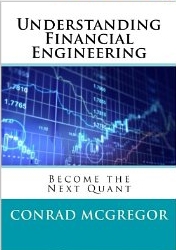It is a Friday, the markets seem to be rationally correcting so I would like to take this as an opportunity to tackle a lighter topic related to behavioral finance. Behavioral finance is a relatively new area within the financial research arena that studies the impact of social, cognitive and emotional human characteristics on financial or economic decisions. This area of study is closely tied to asset bubbles and stock market crashes so it is an important arena of intellectual research to keep an eye on.
This article was highly driven by a recent office epidemic. As an individual who works in a highly quantitative arena I am not one who often dabbles in gambling. When I know that the odds are against me I have no interest in throwing money at a losing proposition. I have only been interested in buying lottery tickets when the cash payout equals the odds of winning so that for every dollar that I put into a lottery ticket buys a ticket with an expected value that is equal to the dollar that I put in. I realize that my odds of winning are extremely low, but I also realize that if I played this game for the next million years I would not be any better or worse off so it provides some rationalization to the game.
The snag came when I was coerced into a lottery pool. The extremely nice and kind equity trader asked me if I wanted to put $5 into the lottery pool along with about 25 other people. I thought, “sure…the pot is not big enough to pay off what I put in on a net present value basis, but what is five dollars and I cannot bear to say no to her”. And so it began. Twenty dollars later I am still in the game and getting more bitter with every $5 that I put into this pool. I know that I should rationally cut my losses, but I cannot stand the thought of the gap risk. What happens if I stop contributing $5 and they actually hit the jackpot? If each of them walks away from work with a few million dollars and I am left here to twiddle my thumbs just because I did not contribute another $5 after already spending $20… The continued contribution of $5 is irrational from a purely economic, logical and rational standpoint – but the decision to contribute is ultimately human.
Human relativity is a strong driving force when it comes to economic decisions and happiness. In the option world traders worry about gap risk in the markets when hedging an option because you can take massive losses. In the example of the lottery pool I worried about gap risk because of the massive emotional trauma that would ensue if the improbable became probable and my coworkers were relaxing on a Caribbean beach while I continued to toil away. Many studies have been done regarding individual happiness and relative economic status. The research found that if given two socioeconomic positions 1) you earn $100,000 and everyone in your neighborhood earns $130,000 or 2) you earn $60,000 and everyone in your neighborhood earns $40,000, the vast majority of people choose scenario 2. Happiness is partly driven by relative wealth and not absolute wealth.
This point is important when reflecting on the current market runup or the previous bubble in housing prices. Individuals have been running to buy stocks now because they fear they will miss out on any further rally and profits, not because they believe stocks are under or fairly valued. Likewise, when housing prices kept increasing, many people who never considered buying a home signed whatever mortgage was available for them to participate in the never-ending wealth producing machine. We all fear that we are going to miss out on opportunities that others will take advantage of and that is a huge driver within all financial markets.
Behavioral finance will not solve our irrationalities as human-beings, but it will help us to better understand and explain them. Just ask yourself a simple question the next time you make a financial decision: are you doing this because you truly believe in it, or simply because you are scared that you are going to be the only one left out…



